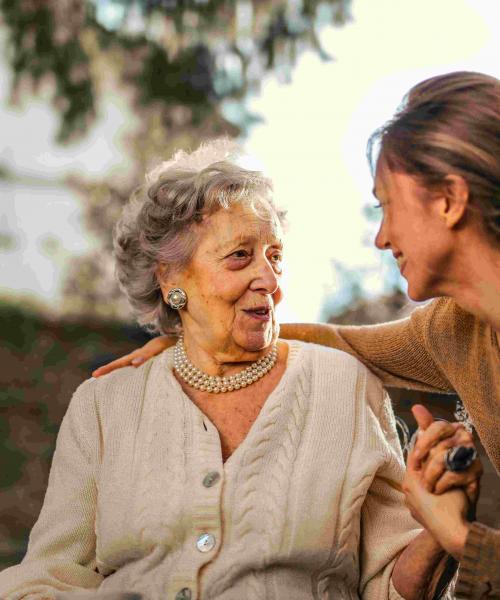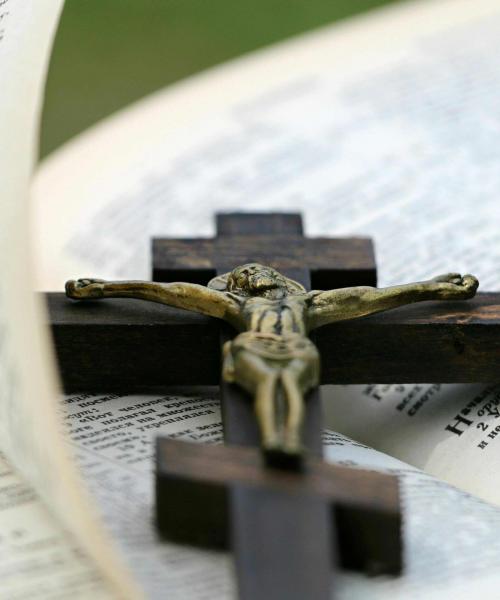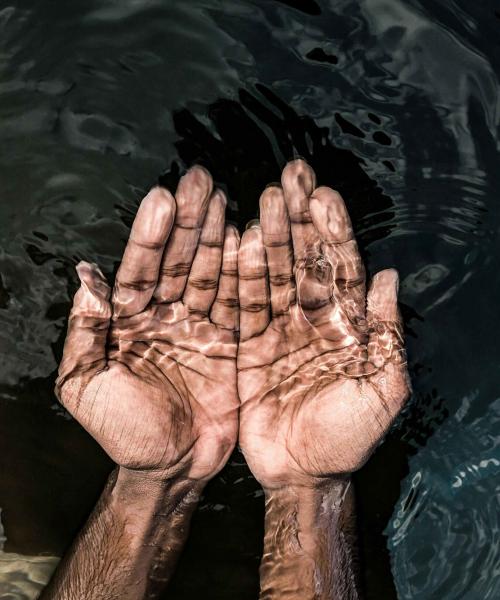
One. Big...Family
I don’t always appreciate what a remarkable story is told in Scripture.
Broadly, it is the shared story of the ‘people of God.’ One by one they relate their experiences; the joys and the jangling nerves that are part of the package when you dare to offer allegiance to the God of Abraham – the creator of the known (and unknown) universe – the Most High – THE LORD.
We are quick to assume that this carefully crafted, deliberately collected bunch of ancient texts describes the development of a small, wandering band of people into a holy, favourite nation. All the clues are there: the divine name revealed – a liberated people led through the desert – named for the one whose named was changed to ‘Israel: he who wrestled with God.’
The trials and triumphs of those who share the story in Scripture are well documented. The divine identity of this bruised and battered nation – even when in exile – even when scattered across the globe – even while enduring Roman occupation – is firmly rooted in our history and our religious traditions.
But every now and then, this remarkable story throws us a curve. Every once in a while, we are reminded that the story is still ‘under construction.’ Like in today’s reading…or in the news of the week.
Once again, the region around the western Mediterranean – the modern state of Israel – the ancient Jewish ‘promised land’ – has exploded in bitter conflict.
Before you start to form an argument about right and wrong, let’s remember that ALL people are God’s people – remember that all land is ‘promised land.’ And within our shared sacred stories, there are plenty of examples of God’s invitation reaching beyond our limited understanding of who God’s people might be…
Ruth is the best of those.
Here is a woman whose life is marked by tragedy. One who had married into the family of God (good!) and been widowed (bad) but shown such devotion to her mother-in-law that she followed Naomi back to ‘god’s country’ in search of relief in a time of famine and hardship.
Such moving back and forth is not uncommon. People go where the opportunities are – even now. What is instructive for us is in seeing how Ruth is received.
Forced to scrounge at the edges of the harvest, she is recognized – first as a foreigner (the one who came home with Naomi) – but also as someone who has shown loving loyalty to her mother-in-law, against all odds.
To leave the familiar for the foreign – bound only by her sense of duty as a daughter by marriage – this act has echoes of a certain Abraham, heeding the call of God.
Ruth is yet another reminder that God does not recognize our boundaries, nor does God put much stock in our definition of ‘foreign.’
The subtle dance between Ruth and Boaz that results in a wedding (and a legacy that leaves its mark on Jesus’ family tree!) is full of strange cultural particularities. But Boaz is being true to the law of God – the hospitality to the stranger and widow – the sense of duty to care for the childless widows of one’s own family – the public defense of Ruth’s honour (for it was beyond shameful for a woman to go to the threshing floor, let alone lay down at the feet of a man!)
Boaz is living out his faith – regardless of the origins of the woman he is helping. The promise of God is a wide cloak indeed, for it covers everyone, and each of us is called to honour that promise.
Which brings us to the present day. Pointing fingers is a game no one wins, but currently, nations are lining up to play it. “Whose side are you on?” is a deadly question with no simple answer…unless you were watching Boaz…unless you were listening to Jesus.
It may be that you wonder why it matters? The fighting in Gaza is so far away, and is such a long-standing conflict; what can we do?
Or you might imagine that this kind of large-scale international incident is best left to the politicians to solve. The problem is that our political understanding of the situation in the Middle East has been formed by the stories we learned in Sunday School. We imagine that we know who is right before we get beyond the headlines…isn’t this the ‘Promised Land?’ Hasn’t God already chosen sides?
Again, I refer you to this morning’s readings. The mobility of people in this region – for centuries! – and the basic understanding of the laws of hospitality and humanity that Boaz turns into reality…this is what God has put before us.
And while it suits the politicians to remind us of the boundaries described in the Scriptures, the law of God that accompanied the promise made it clear that strangers, outsiders, exiles and foreigners were to be welcomed – treated with dignity. “God’s people” were never to forget that they had been strangers once – they had been mis-treated once – and they were to behave differently.
Boaz is a single example. His actions made a great difference in the lives of Ruth and Naomi, but we don’t know if he was able to end xenophobia in his community. Our finger pointing and blame making work to the politician’s advantage – giving them leverage; helping them rationalize the actions that dehumanize those on the other side of every conflict. But our duty as followers of Jesus is to recognize the God-likeness in each person.
To ‘do the will of God’ is to act with compassion, to seek justice, to walk humbly, to love and show mercy – to everyone: neighbour, enemy, stranger, and friend. “These are my siblings” says Jesus - “the ones who do the will of God.”
We may only be able to affect the lives of a handful of people – we may not have the global reach of a government – but out behaviour can set an example for someone. Our habits can offer people an alternative way to act.
When conflict tears apart nations and families and ideas, we would do well to remember that we are disciples of the King of Peace. When sides are being chosen and banners being waved, we might remember that there is always someone on the other side who is frightened and alone – who is in need of compassion and support. If we would be part of the family of God, we best remember the story of Ruth – the compassion of Boaz.
The love of God knows no boundaries. The gift of the gospel plays no favourites.
God’s people are everywhere.
 St. John's
St. John's




